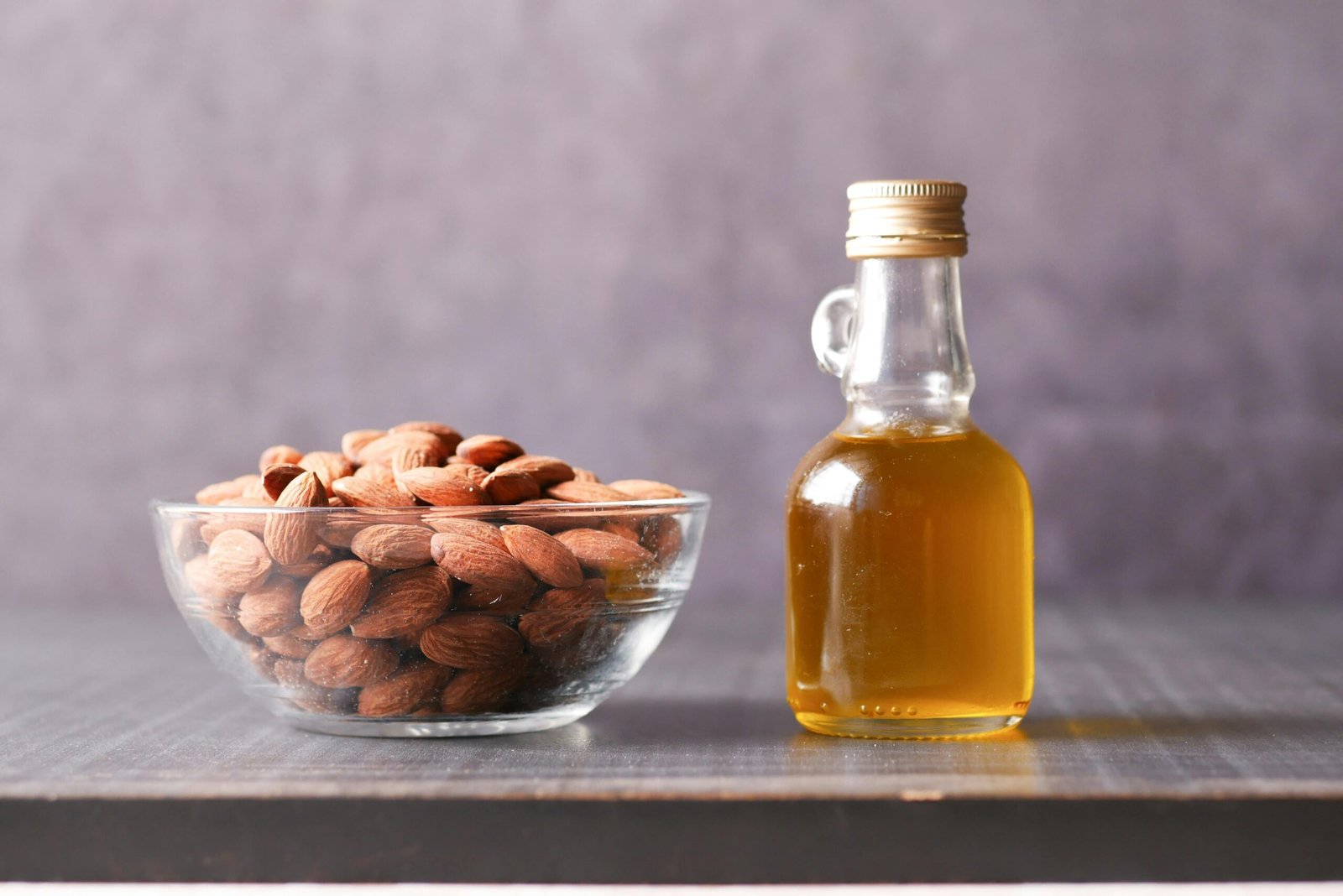Almonds, those tiny, crunchy delights, have been revered for centuries for their taste, versatility, and nutritional value. Packed with essential nutrients, antioxidants, and healthy fats, they offer a myriad of benefits for both humans and animals. Let’s dive deeper into why almonds should be a staple in your diet.
Benefits for Humans
Heart Health: Almonds are rich in monounsaturated fats, a type of healthy fat that can help lower bad cholesterol (LDL) and improve good cholesterol (HDL) levels. This can reduce the risk of heart disease, stroke, and other cardiovascular problems.
Weight Management: Almonds can help you feel full for longer, thanks to their fiber and protein content. This can help control cravings and prevent overeating, leading to weight loss or maintenance.
Blood Sugar Control: The fiber in almonds can help slow down the absorption of sugar into your bloodstream, making them a great choice for people with diabetes. This can help prevent spikes and crashes in blood sugar levels.
Gut Health: Almonds are a good source of fiber, which promotes healthy digestion and prevents constipation. Fiber can also help nourish the beneficial bacteria in your gut, improving overall digestive health.

Brain Boost: The healthy fats in almonds support brain health and may improve cognitive function. They can help enhance memory, concentration, and overall brain performance.
Skin Health: Almonds are a great source of vitamin E, an antioxidant that can help protect your skin from damage caused by free radicals, such as premature aging and wrinkles. Vitamin E can also help moisturize your skin and reduce inflammation.
Eye Health: Vitamin E also plays a crucial role in eye health, helping to protect your eyes from age-related macular degeneration, a leading cause of vision loss in older adults.
Stronger Bones: Almonds contain magnesium, a mineral essential for bone health. Magnesium helps to regulate calcium levels in the body, ensuring strong and healthy bones.
Muscle Function: Magnesium is also important for muscle function, helping to prevent cramps and muscle weakness. It can also help regulate nerve function.
Energy Boost: The nutrients in almonds can provide a sustained energy boost throughout the day, without the crash often associated with sugary snacks.
Benefits for Animals
Almonds can also offer numerous benefits for your furry friends:
Healthy Coat: Almonds can help improve the health and shine of your pet’s coat, thanks to the healthy fats and nutrients they contain.
Stronger Bones: As with humans, almonds can help support bone health in animals, especially older pets who may be at risk of osteoporosis.
Weight Management: Almonds can help pets maintain a healthy weight by providing a satisfying and nutritious snack.
Brain Function: Almonds can support brain function in animals, especially older pets who may experience cognitive decline.
Energy Boost: Almonds can provide a natural energy boost for pets, especially active animals.
Other Benefits
Sustainable Agriculture: Almond trees can help improve soil health and reduce erosion, making them a sustainable crop.
Economic Benefits: Almond farming can provide economic opportunities for communities, particularly in regions where almonds are grown.
Cultural Significance: Almonds have been used in various cultures for centuries, with deep cultural significance in many traditions.
Almonds are a versatile and nutritious food that can offer a wide range of benefits for both humans and animals. Incorporating almonds into your diet can help improve your overall health and well-being.
Almond Oil: Nature’s Elixir
Almond oil is a versatile and nourishing oil extracted from almonds. It’s been used for centuries for its beauty benefits and culinary applications. Rich in vitamins, minerals, and antioxidants, almond oil offers a multitude of benefits for both humans and animals.
Benefits for Humans
- Skincare: Almond oil is a popular choice for skincare due to its moisturizing properties. It can help hydrate dry skin, reduce the appearance of fine lines and wrinkles, and soothe irritated skin.
- Hair Care: Almond oil can nourish the scalp and promote hair growth. It can also help reduce dandruff and split ends.
- Massage: Almond oil is a popular choice for massage due to its gentle and soothing properties. It can help relax muscles, reduce stress, and improve circulation.
- Cooking: Almond oil can be used as a healthy alternative to other cooking oils. It has a mild flavor and a high smoke point, making it suitable for various cooking methods.
- Nail Care: Almond oil can help strengthen nails and prevent breakage.
- Makeup Remover: Almond oil can gently remove makeup without irritating the skin.
Benefits for Animals
- Coat Health: Almond oil can help improve the health and shine of your pet’s coat. It can also help soothe dry, itchy skin.
- Skin Conditions: Almond oil can be used to treat various skin conditions in animals, such as eczema and hot spots.
- Massage: Almond oil can be used for massage therapy to help relax muscles and reduce stress in animals.
How to Use Almond Oil
- Skincare: Apply a few drops of almond oil directly to your skin, massaging it in gently.
- Hair Care: Massage a small amount of almond oil into your scalp and hair, leave it on for a few hours or overnight, and then shampoo and condition as usual.
- Cooking: Use almond oil to cook in place of other oils.
- Nail Care: Massage almond oil into your nails and cuticles.
- Makeup Remover: Apply a few drops of almond oil to a cotton pad and gently wipe away makeup.
Remember: While almond oil is generally safe, it’s always a good idea to do a patch test before using it on your skin or hair.
Almond-vicious: Uncommon Recipes for a Nutty Twist
Tired of the same old almond recipes? Let’s spice things up with some uncommon, easy, and delicious almond-based dishes. These recipes will surprise your taste buds and impress your guests.
Savory Treats
- Almond-Crusted Salmon: This is a quick and easy dinner that’s packed with flavor. Simply coat salmon fillets in a mixture of ground almonds, breadcrumbs, and spices, then pan-fry or bake until cooked through.
- Almond-Parmesan Roasted Asparagus: For a healthy and delicious side dish, toss asparagus spears in a mixture of olive oil, grated Parmesan cheese, and ground almonds. Roast in the oven until tender and slightly browned.
- Almond-Crusted Tofu: This is a great vegan alternative to fried chicken. Coat tofu cubes in a mixture of almond flour, breadcrumbs, and spices, then fry or bake until crispy.

Sweet Delights
- Almond-Coconut Ice Cream: This creamy and refreshing dessert is perfect for a summer treat. Blend frozen coconut milk, almond milk, maple syrup, and vanilla extract until smooth. Freeze in an ice cream maker according to the manufacturer’s instructions.
- Almond-Pistachio Brittle: This crunchy and addictive treat is perfect for gift-giving or snacking. Melt butter, sugar, and honey in a saucepan, then stir in chopped almonds and pistachios. Pour the mixture onto a baking sheet and let it cool before breaking into pieces.
- Almond-Raspberry Cake: This moist and flavorful cake is perfect for a special occasion. Combine almond flour, sugar, baking powder, and salt in a bowl. In a separate bowl, whisk together eggs, vanilla extract, and almond milk. Gradually add the wet ingredients to the dry ingredients, mixing until just combined. Pour the batter into a greased and floured cake pan and bake until a toothpick inserted into the center comes out clean. Let the cake cool before frosting with a raspberry buttercream.
These are just a few ideas to get you started. Feel free to experiment with different flavors and ingredients to create your own unique almond recipes.
Nutritional Values for 100 Grams of Almonds
Almonds are a powerhouse of nutrients, offering a wide range of health benefits. Here’s a breakdown of the nutritional values in 100 grams of almonds:
| Nutrient | Amount per 100g | % Daily Value |
| Calories | 579 | – |
| Fat | 49.9g | 64% |
| Saturated Fat | 4.1g | 21% |
| Unsaturated Fat | 45.8g | – |
| – Monounsaturated Fat | 32.9g | – |
| – Polyunsaturated Fat | 12.9g | – |
| Cholesterol | 0mg | 0% |
| Sodium | 1mg | 0% |
| Total Carbohydrates | 21.6g | 8% |
| Dietary Fiber | 12.5g | 46% |
| Sugars | 4.4g | – |
| Protein | 21.2g | 42% |
| Vitamin E | 25.6mg | 171% |
| Calcium | 269mg | 21% |
| Iron | 3.7mg | 21% |
| Magnesium | 270mg | 64% |
| Potassium | 733mg | 16% |
Please note: These values are approximate and may vary slightly depending on the specific type of almonds (e.g., raw, roasted, salted).
Incorporating almonds into your diet can be a delicious and nutritious way to improve your overall health.

